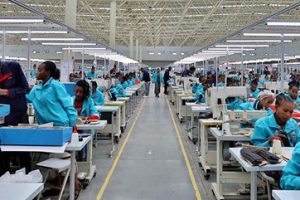
The state is the only responsible organ which exclusively run and finance infrastructure facilities like road and electricity in developing countries like Ethiopia. In developed countries where there are the prerequisite knowledge and accumulation of capital, the sector is liberalized to the market or needs the reaction of public private partnership (PPP).
Recently, in Ethiopia, the participation of the private sector is recognized as an essential strategy to realize country’s development objectives, including the infrastructure system.
Since it is desirable to establish a favorable legislative framework to promote and facilitate the implementation of privately financed infrastructure projects by enhancing transparency, fairness and long-term sustainability; the Ethiopian government has recently started and get into practice to involve the private sector in infrastructure development as per proclamation number 1076/2010.
Following the ratification of the proclamation the board which has been established pursuant to the proclamation has started operation. Thus, it has currently identified road and power projects which worth seven billion USD and floated them to the private investors.
Scholars suggests that though the reform that has been take to involve the private investors is appropriate and what the time demands, but it needs great care
Lemesa Bayisa, (PHD) Finance Management Development College Dean at Civil Service University said that in spite of the fact that there has been various grand projects that has been executed by the state and the public, their performance in relation to quality and schedule remained to be poor. This in turn forced the government to incur additional cost and hinder the public from getting timely and quality services. Thus, it is unquestionable to engage foreign investors in mega projects.
Nonetheless, the projects which is to be floated for foreign investors should be the ones that cannot be done with domestic capacity; projects that are supposed to be essential in transferring knowledge and skill, Lemesa added.
He further recommended that the government has to work in collaboration with higher institutions, students in related profession with projects, relevant government organization during the contractual agreement within foreign investors. The government should also give due concern for the progress of knowledge skill transfer.
Kibur Gena, a businessman and former president of both the Addis Ababa and Ethiopia chambers of commerce and sectoral associations stated that since it is difficult to find competent investors in the infrastructure sector with the needed capital and skill in domestic market, the government has to shift its concern towards foreign investors.
According to him, the need for infrastructure is increasing from time to time due to population growth and relative development in the country. However, since government’s capacity in terms of capital and knowledge is limited, it will not be able to answer the demand in time. Thus, the state is advised to give projects that can’t be handled by inner capacity to foreign investors.
It is also imperative to create a favorable framework for domestic investors so that they can use the opportunity and there by secure foreign currency.
Kibur further said in Ethiopia there is reluctance to receive new technology or passivity to acquire the desired skill as fast as possible among the youth. The situation appeared to be a potential treat against the growth of domestic investors. “To overcome this, it is essential to investigate our education quality efficiency of teachers, the curriculum and take immediate action which possibly fix the problem.”
Ahenafi Abera, Capacity Building and Knowledge Management communication Director at the Ministry of Finance and Economic Cooperation on his part said various efforts have been made to tackle challenges encountered in PPP. As a result, the government is aggressively working to grow promote and facilitate the capacities of local investors at large. Besides it set to scale up best practices of countries that passed through temptation in implementing PPP.
He further explained, these-days the fundamental demand of the public is infrastructural development. In other words, it should be top priority area of the government. Thus, the board pursuant to enforce the PPP proclamation is currently identify road and power projects open for the private investors.
Accordingly, six solar projects, seven hydro-projects and three express ways projects have been identified in the power, road sectors as well.
The Ethiopian Herald April 18, 2019
BY LAKACHEW ATINAFU





